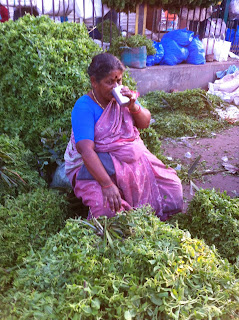It was December 26, 2004. The sea roiled and the third-largest recorded undersea earthquake exploded in the Indian Ocean. Its magnitude was between 9.1 and 9.3, and at almost 10 minutes was the longest observed duration of faulting. Indonesia, Sri Lanka, India and Thailand, in that order, were the countries the most devastated by loss of life and destruction of the land and economies.
But when it came to displaced persons, India was the most severely affected:
Indonesia 500,000+
Sri Lanka 516,150
India 647,599
Thailand 7,000
Maldives 15,000+
People, in deep shock, roamed aimlessly on the beaches of South India, looking for loved ones, looking for their homes, looking for meaning.
And in this group of people was a large contingent of children orphaned by the monstrous wave, bereft of all they knew of security, of family, of hope. These children stayed on the beach because they had nowhere else to go. They had no one to take them in, to offer comfort, direction. They had not even the basic necessities of life.
Into this tragic situation came the most despicable of humanity, the vermin who prey on vulnerable children. They started collecting these children with promises of homes, of food, of shelter. And they absorbed them into the monstrous underground network of human trafficking and the sex trade that thrives in India.
On the south-west coast of India is a former student of Dad's who now is the President of his own Bible College in a place called Trivandrum. Dr. G.S. Nair saw the dangers these children were in, and he sent students to go and rescue those they could. In the next few days the students brought over 50 children back with them to a makeshift shelter in a nearby village where Dr. Nair had recruited a local pastor and his wife to care for them.
 |
| Over the entryway to the Children's Home |
 |
| The girls greet us |
Over the last few years a small orphanage has been built for these children through Dr. Nair's ministry. They are fed; they are educated - the eldest of them started at a local college this year!; they are safe. The reason they could afford the property is that it is next door to a property with a few old graves on it ("At least the neighbours don't complain about the noise!" Nair jokes).
 |
| The big girls' room |
Conditions are fairly primitive: the children sleep on thin mattresses on the floor and store their belongings in suitcases and makeshift boxes because there is no extra money for luxuries - and 25 bunk beds or a few shelves are considered luxuries when you have to purchase water every day as the well is dry, even in India, where things like basic furniture are relatively expensive.
 |
The pastor's daughter with Shelly,
the girls' matron, in front
of the food supply shelves |
And the children themselves suffer from the horrible trauma to this day. One little guy and his even smaller brother couldn't find their parents that December 26. The older brother held onto his little brother's hand as tightly as he could in the battering wind and rain, until the wave viciously wrested their hands apart and the littler boy was flung out to sea before his brother's tortured eyes. Who we would call the "surviving child" still weeps about it over six years later.
 |
| The boys singing at prayer time |
 |
Candy, handed out by the
pastor's beautiful daughter |
These children are cobbling together a life and a family of sorts, a family patched together with the frayed pieces of despair and of loss and of desperation and even of resignation. Debs had brought some mini chocolate treats for them, and before they took any for themselves they made sure there was enough for the children who were away at tuition. They are safe and they are cared for but in their eyes is written the story of parents who don't come to comfort the little girl who screams out in the night; the story of the 14-year-old boy who prays every day that the local MP will change the rules to make things safer for his people. The story of kids who wonder if anyone cares about who they were and sees who they are now.
 |
"What number hair?" (G.S. Nair is
sitting next to Dad.) |
One person sees. That evening at prayer time, which is held in the little chapel on the compound, Dad called up a tiny waif who was sitting on the floor in the front row. He hugged the little boy and started tousling his hair. Then he grabbed onto one hair and yanked it out of the child's head. The kid giggled.
"What number hair did I just pull out of your head?" he asked the boy.
"I don't know, Sir," the boy responded uncertainly.
"How many hairs does your friend have on his head?" Dad asked the boys.
"Don't know, Sir," came back the chorus. "Too many to count!"
 |
Saying goodbye. The boy waving
is the one who prays for his
government official every day. |
"God knows," Dad said. "It tells us in the Bible that God knows each of us by our names. He knows all about our whole lives. He has even numbered each hair on our heads.
"And the One who knows how many hairs are on your heads, He cares about your lives. He knows your suffering. He loves you.
"He will never leave you. You are in His hand. He will never let you go."
And as we were getting ready to leave, he hugged each child that came up to him.
Almost all of them came up to him.
























































